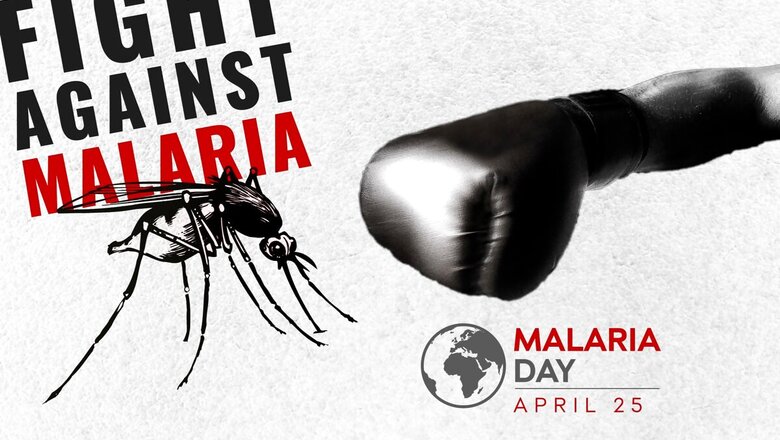
views
Malaria comes as a life-threatening disease and is transmitted via the bites of mosquitoes that are infected by malarial parasites. World Malaria Day is celebrated every year on April 25 to endorse strategic efforts by authorities across the globe to curb the disease.
The disease primarily spreads during the monsoon in the country but stringent malaria control measures today have reduced the number of fatalities by a significant margin.
The World Health Organisation (WHO) actively urges nations not to halt the planning or implementation of mosquito control measures, while ensuring that these services are offered utilizing best practices to safeguard health workers and communities from the second wave of the Coronavirus.
As per World Health Organisation, India accounts for nearly 77 per cent of cases of Malaria in the South-East Asian region. The diagnosis of the disease includes blood tests as well as an examination of physical symptoms.
A large number of drugs are also available to treat the disease but they should be administered only under medical supervision.
Some of the common symptoms of malaria include sweating, headache, muscle pain, nausea, chills, fever and vomiting. In extreme cases, the infected person can witness symptoms including convulsions, jaundice, coma etc.
The symptoms may return every 48 to 72 hours with asymptomatic periods.
Since India is witnessing a massive second wave of Coronavirus, here are some preventive measures you take while staying indoors:
• Utilize mosquito repellent on the exposed skin.
• Empty and refill the flower cases regularly once a week.
• Keep the doors and windows closed in the evening where mosquitoes are frequently prevalent.
• Install screens/wire mesh to coat windows and doors and check their quality.
• Use mosquito repellents to prevent mosquito bites.
• Utilize a mosquito net over your bed, preferably permethrin-coated nets.
Read all the Latest News, Breaking News and Coronavirus News here. Follow us on Facebook, Twitter and Telegram.




















Comments
0 comment